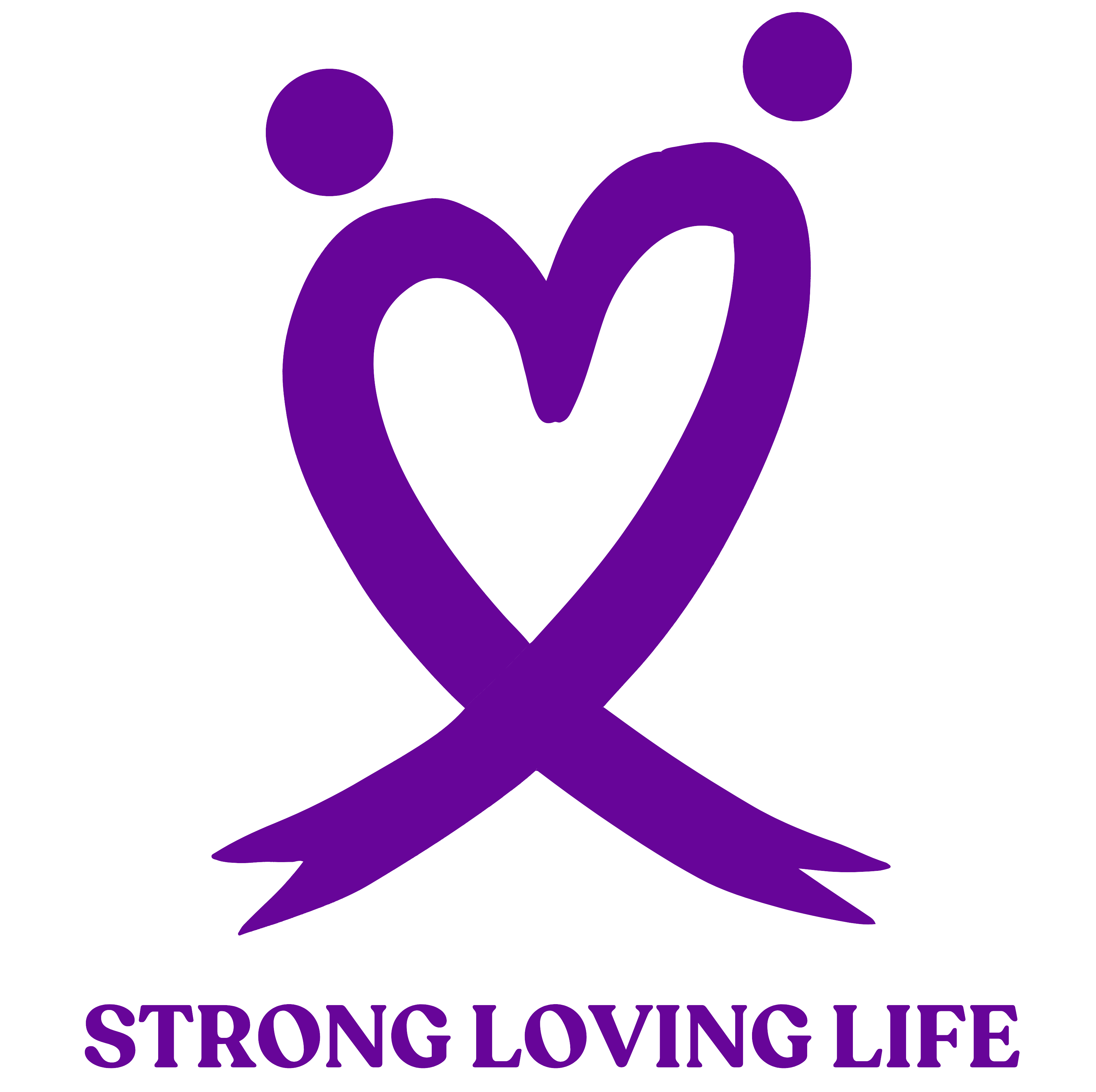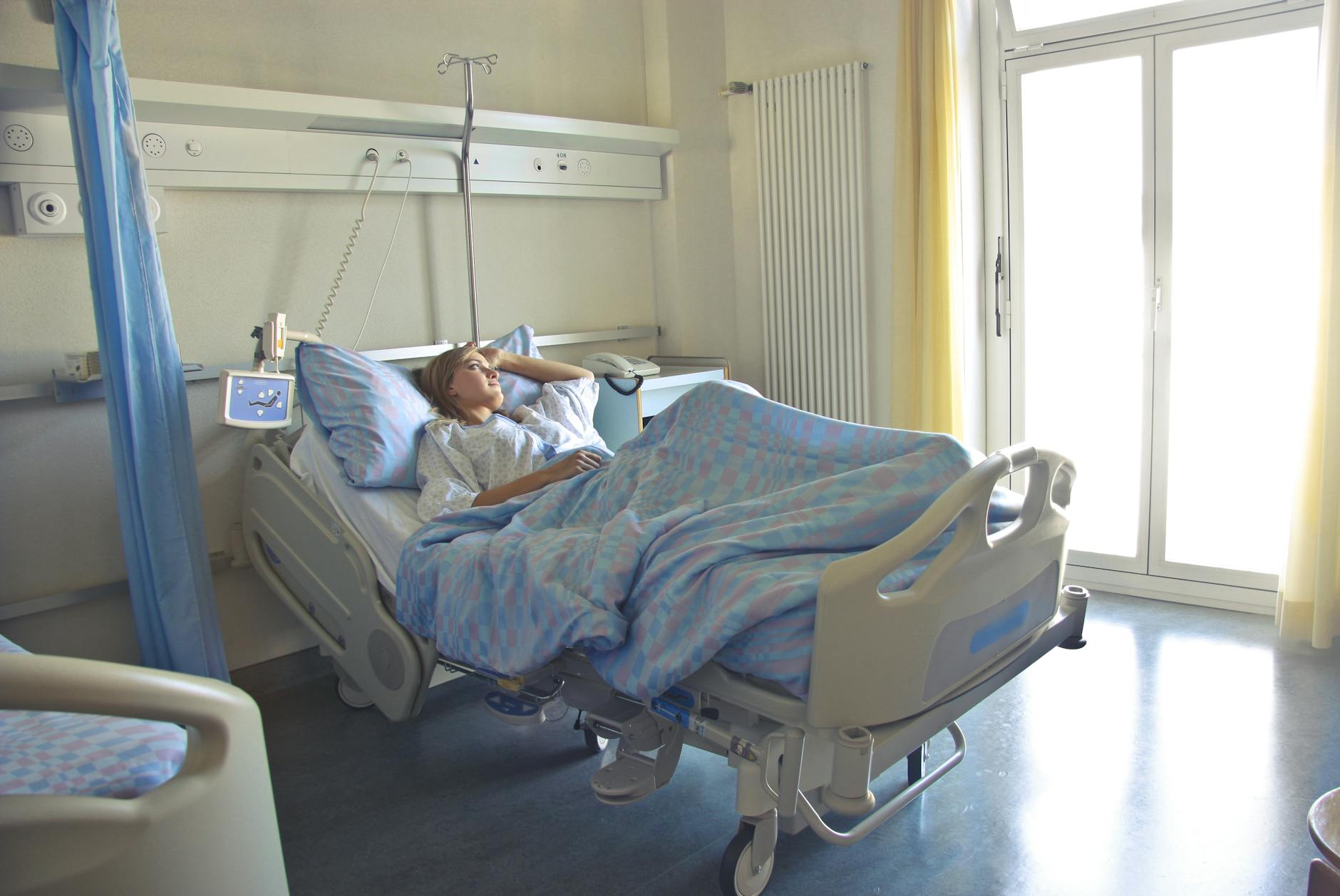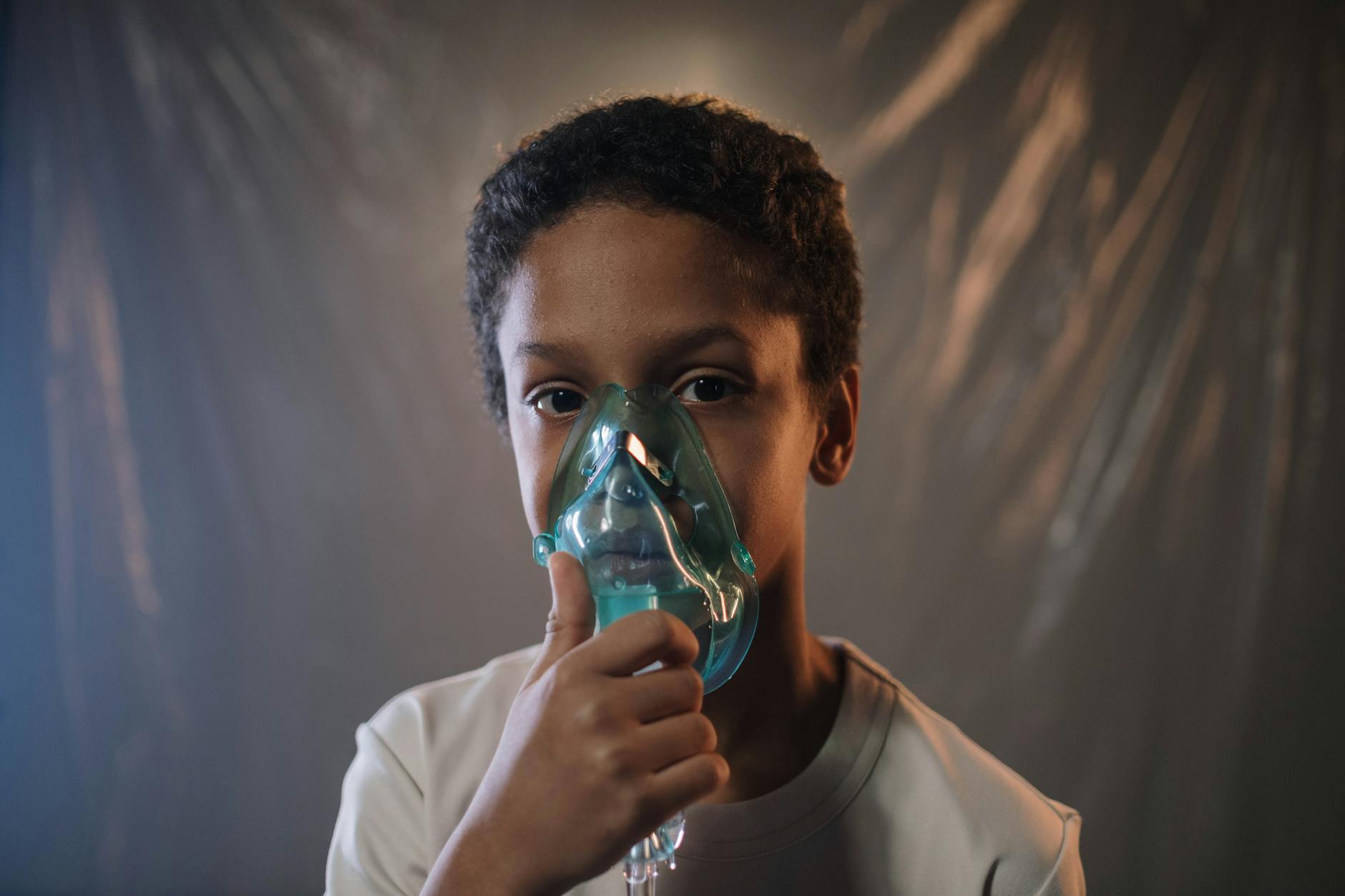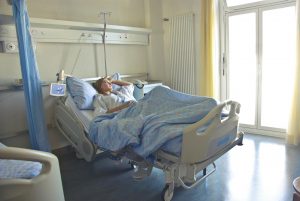Our bodies are complex, finely-tuned machines, constantly sending signals about their state of health. Learning to interpret these signals – the symptoms we experience – is a crucial life skill that empowers us to take proactive steps in managing our well-being. While many common ailments resolve on their own, recognizing when a symptom warrants professional medical attention can be the difference between a quick recovery and a serious health crisis. This comprehensive guide will delve into common symptoms, differentiate between minor concerns and red flags, and outline critical factors in seeking timely medical help.
Understanding Symptoms
Symptoms are the body’s way of communicating distress or imbalance. They can be subtle or dramatic, localized or widespread, and range from mild discomfort to debilitating pain. Ignoring these signals, or dismissing them as insignificant, can delay diagnosis and treatment of underlying conditions that may worsen over time. Conversely, panicking over every minor ache can lead to unnecessary anxiety and medical visits. The key lies in understanding the context, severity, and persistence of symptoms.

Common Symptoms and What They Might Indicate
Let’s explore some frequently experienced symptoms and their potential implications:
- Fever: An elevated body temperature (typically above 100.4°F or 38°C) is often a sign the body is fighting an infection.
- General Concern: Low-grade fever accompanied by cold or flu symptoms often resolves with rest and fluids.
- When to Seek Help: High fever (above 103°F or 39.4°C), fever in infants under 3 months, fever lasting more than a few days, or fever accompanied by severe symptoms like confusion, rash, stiff neck, or difficulty breathing.
- Pain: Pain is a subjective, unpleasant sensation that can vary greatly. Its location, character (sharp, dull, throbbing), and intensity provide vital clues.
- General Concern: Mild, localized pain from common injuries (e.g., muscle strain) or headaches relieved by over-the-counter medication.
- When to Seek Help: Severe, sudden, or unexplained pain; pain accompanied by numbness, weakness, or tingling; chest pain; abdominal pain with fever or vomiting; pain after a significant injury; or pain that worsens or persists despite home remedies.
- Fatigue: Feeling tired is normal, especially after exertion or poor sleep.
- General Concern: Temporary tiredness due to stress, lack of sleep, or a mild illness.
- When to Seek Help: Persistent, overwhelming fatigue that doesn’t improve with rest, significantly impacts daily activities, or is accompanied by other symptoms like weight loss, fever, or depression.
- Nausea, Vomiting, or Diarrhea: These digestive issues are often caused by food poisoning, viruses, or dietary indiscretions.
- General Concern: Mild, short-term episodes without dehydration.
- When to Seek Help: Persistent vomiting (especially with inability to keep fluids down), signs of dehydration (reduced urination, dry mouth, dizziness), severe abdominal pain, bloody vomit or stool, or symptoms lasting more than 2-3 days.
- Changes in Bowel or Bladder Habits: Variations in bowel movements or urination patterns can be subtle indicators.
- General Concern: Temporary constipation or diarrhea due to diet changes, or increased urination from fluid intake.
- When to Seek Help: Persistent changes in bowel habits (e.g., new onset constipation or diarrhea lasting weeks), blood in stool or urine, painful urination, frequent nighttime urination, or unexplained weight loss accompanying these changes.
- Skin Changes: Rashes, moles, and other skin alterations can indicate various conditions.
- General Concern: Minor rashes from allergies or irritants, or new moles that are small, symmetrical, and uniform in color.
- When to Seek Help: Widespread or rapidly spreading rashes, rashes with fever or blistering, new moles that are asymmetrical, have irregular borders, varied colors, or are larger than 6mm (ABCDEs of melanoma), or non-healing sores.
- Respiratory Symptoms: Cough, shortness of breath, and wheezing are common.
- General Concern: Occasional cough from allergies or a mild cold.
- When to Seek Help: Persistent cough (especially with fever, chest pain, or colored mucus), sudden difficulty breathing, wheezing, or shortness of breath at rest or with minimal exertion.
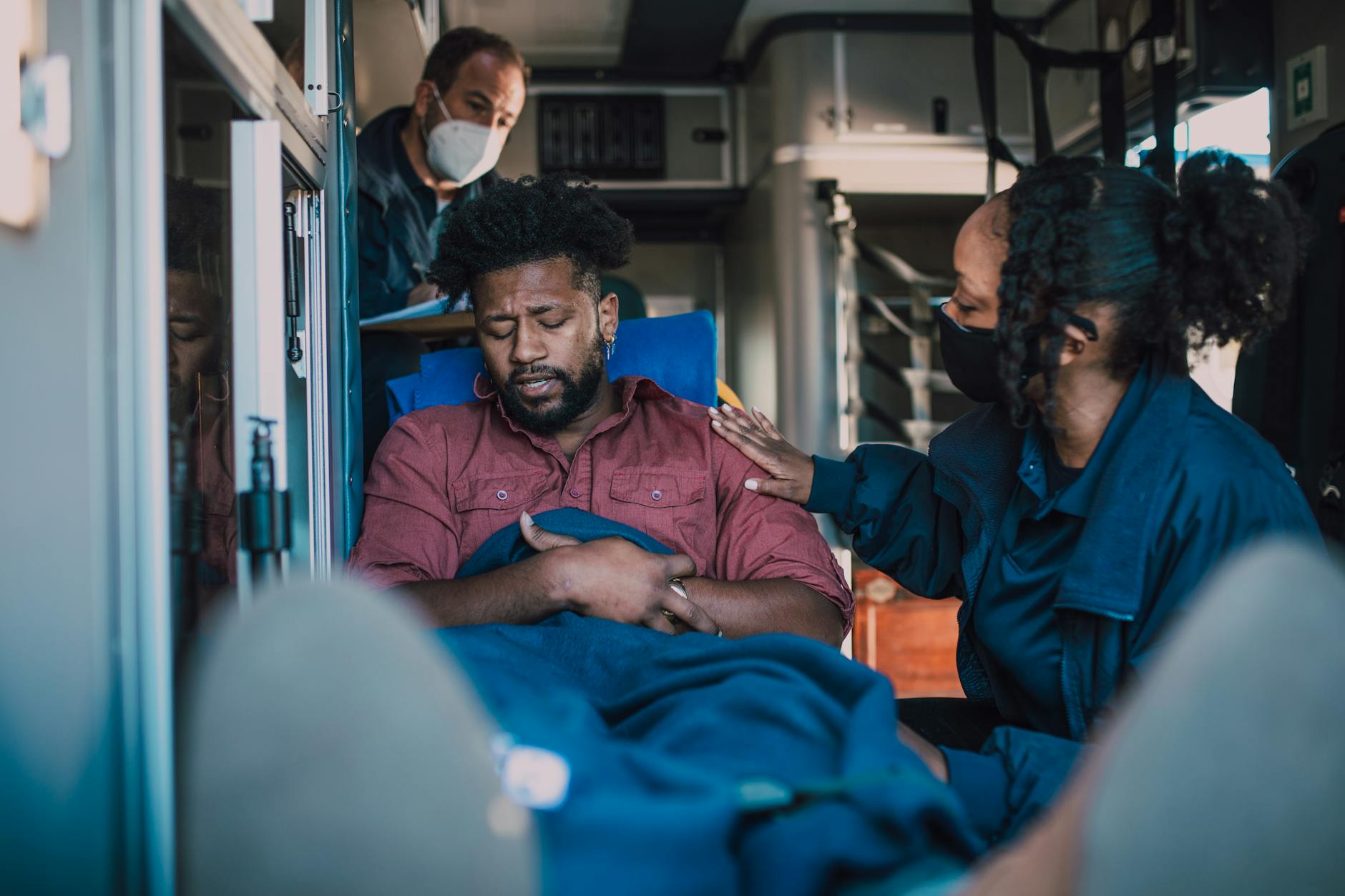
Red Flag Symptoms: When to Act Immediately (Emergency Situations)
Some symptoms demand immediate medical attention. These are often signs of life-threatening conditions. Do not hesitate to call emergency services (like 911 in the U.S. or your local emergency number) if you or someone you know experiences any of the following:
- Severe Chest Pain or Pressure: Especially if it radiates to the arm, back, neck, jaw, or stomach, and is accompanied by shortness of breath, sweating, nausea, or lightheadedness. This could indicate a heart attack.
- Sudden Numbness or Weakness: Particularly on one side of the body, affecting the face, arm, or leg. This is a classic sign of a stroke. Remember the F.A.S.T. acronym:
- Face drooping
- Arm weakness
- Speech difficulty
- Time to call emergency services
- Difficulty Breathing or Shortness of Breath: Especially if sudden, severe, or accompanied by blue lips or fingers.
- Sudden, Severe Headache: Often described as the “worst headache of your life,” potentially accompanied by stiff neck, confusion, vision changes, or vomiting. This could indicate a stroke or aneurysm.
- Unexplained Bleeding: Significant bleeding from any body opening (mouth, nose, rectum, vagina) or blood in vomit, stool, or urine.
- Loss of Consciousness or Fainting: Especially if prolonged, or if the person is difficult to rouse.
- Seizures: Especially if it’s the first seizure, or if it lasts longer than 5 minutes.
- Sudden Vision Loss or Double Vision.
- Sudden Onset of Confusion or Disorientation.
- Signs of Allergic Reaction (Anaphylaxis): Swelling of the face, lips, or throat, difficulty breathing, hives, rapid pulse after exposure to an allergen.
Factors Influencing When to Seek Help
Beyond the specific symptom, several factors should influence your decision to seek medical care:
- Severity: How intense is the symptom? A mild cough is different from severe, persistent coughing fits.
- Persistence or Duration: Has the symptom lasted longer than expected for a minor illness? Is it getting worse over time?
- New Symptoms: Is this a new symptom you’ve never experienced before?
- Accompanying Symptoms: Is the symptom occurring alone or with a cluster of other concerning signs?
- Existing Chronic Conditions: If you have conditions like diabetes, heart disease, or an autoimmune disorder, symptoms that might be minor for others could be serious for you.
- Age: Infants, young children, and the elderly are often more vulnerable and can deteriorate rapidly. Symptoms in these groups should be evaluated with greater caution.
- Recent Travel: Have you recently traveled to an area with infectious disease outbreaks?
Preparing for Your Medical Appointment
When you decide to seek medical help, being prepared can make your visit more productive and ensure you get the best advice.
- Before Your Doctor’s Appointment: A Checklist
- Write down all your symptoms, including when they started, how severe they are, what makes them better or worse, and how they have changed over time.
- List all medications you are currently taking (prescription, over-the-counter, supplements, herbal remedies).
- Note any allergies you have.
- Bring a list of any questions or concerns you have for the doctor.
- Be ready to discuss your medical history and your family’s medical history.
- Consider bringing a trusted family member or friend for support and to help remember information.

The Importance of Medical Consultation
Self-diagnosis, while tempting in the age of readily available online information, can be misleading and dangerous. While the internet can provide general knowledge, it cannot replace the nuanced assessment of a trained medical professional. Doctors use their expertise, clinical judgment, and diagnostic tools to accurately interpret symptoms, diagnose conditions, and recommend appropriate treatment plans. Trusting your instincts about your body is important, but so is knowing when to defer to professional expertise.
| Symptom Category | General Concern (Monitor, Home Care) | Immediate Medical Attention (Call Urgent Care/Doctor) | Emergency (Call 911/Local Emergency) |
|---|---|---|---|
| Fever | Low-grade, no other severe symptoms | High fever (>103°F/39.4°C), fever in infants < 3 months, persistent fever (>3 days) | Fever with stiff neck, confusion, severe rash, difficulty breathing |
| Pain | Mild, localized, relieved by OTC meds (e.g., headache, muscle ache) | Worsening pain, persistent pain, pain after injury, abdominal pain with vomiting | Severe, sudden, unexplained pain (especially chest, head, abdomen), pain with loss of function |
| Respiratory | Mild cough, runny nose (cold symptoms) | Persistent cough, wheezing, shortness of breath with exertion, colored phlegm | Severe difficulty breathing, gasping for air, blue lips, choking |
| Digestive | Mild nausea, temporary diarrhea, constipation | Persistent vomiting/diarrhea (>2-3 days), signs of dehydration, abdominal pain with fever | Bloody vomit/stool, severe abdominal pain, inability to keep fluids down, signs of severe dehydration |
| Neurological | Occasional lightheadedness, mild tension headache | Persistent dizziness, frequent headaches, numbness/tingling, changes in coordination | Sudden severe headache, sudden weakness/numbness (one side), confusion, loss of consciousness, seizures |
| Bleeding/Bruising | Minor cuts, small bruises | Nosebleeds that won’t stop, frequent or unexplained bruising, blood in urine/stool (minor amounts) | Heavy or uncontrollable bleeding, significant blood in vomit/stool/urine, severe head injury with bleeding |
Know when it’s there
Empowering yourself with the knowledge to recognize symptoms and understand their implications is a cornerstone of good health management. While many symptoms are fleeting and benign, acting promptly when red flags appear can be life-saving. Listen to your body, trust your instincts, and when in doubt, always err on the side of caution and seek professional medical advice. Your health is your most valuable asset, and recognizing its warning signals is the first step in protecting it.
Frequently Asked Questions (FAQs)
Q1: How do I know if my symptoms are serious enough for an emergency room visit versus an urgent care clinic or a regular doctor’s appointment? A1: Emergency Room: Go to the ER for life-threatening conditions or symptoms that could cause permanent disability, such as severe chest pain, sudden numbness/weakness, severe breathing difficulty, uncontrolled bleeding, severe head injury, or loss of consciousness. Urgent Care: Use urgent care for conditions that need prompt attention but are not life-threatening, like minor cuts needing stitches, sprains, moderate flu symptoms, persistent fever, or urinary tract infections. Regular Doctor: Schedule an appointment for ongoing symptoms, chronic condition management, routine check-ups, or minor illnesses that don’t require immediate attention.
Q2: Should I always Google my symptoms first? A2: While searching symptoms online can provide general information, it’s crucial not to self-diagnose based solely on internet searches. Online information can be overwhelming, inaccurate, and lead to unnecessary anxiety or, worse, delay proper medical attention. Use reputable health websites for general knowledge, but always consult a healthcare professional for diagnosis and treatment.
Q3: What if I feel something is wrong, but I don’t have clear symptoms? A3: Trust your intuition. If you have a persistent feeling that something is off with your body, even without a specific symptom you can pinpoint, it’s always advisable to consult your doctor. Sometimes, early signs of illness are subtle and require a professional to uncover.
Q4: Can stress or anxiety cause physical symptoms that mimic serious conditions? A4: Yes, absolutely. Stress and anxiety can manifest in a wide range of physical symptoms, including chest pain, heart palpitations, shortness of breath, headaches, digestive issues, and muscle tension. While these symptoms are real, it’s important not to self-diagnose them as stress-related without a medical evaluation to rule out other underlying conditions. Your doctor can help differentiate and provide appropriate guidance.
Q5: How often should I get a routine check-up even if I feel healthy? A5: The frequency of routine check-ups can vary based on age, sex, risk factors, and existing health conditions. Generally, healthy adults should consider an annual physical check-up. These visits are crucial for preventative care, screening for diseases, and discussing any subtle changes or concerns with your doctor. Always follow your doctor’s recommendations for preventive screenings and check-up schedules.
